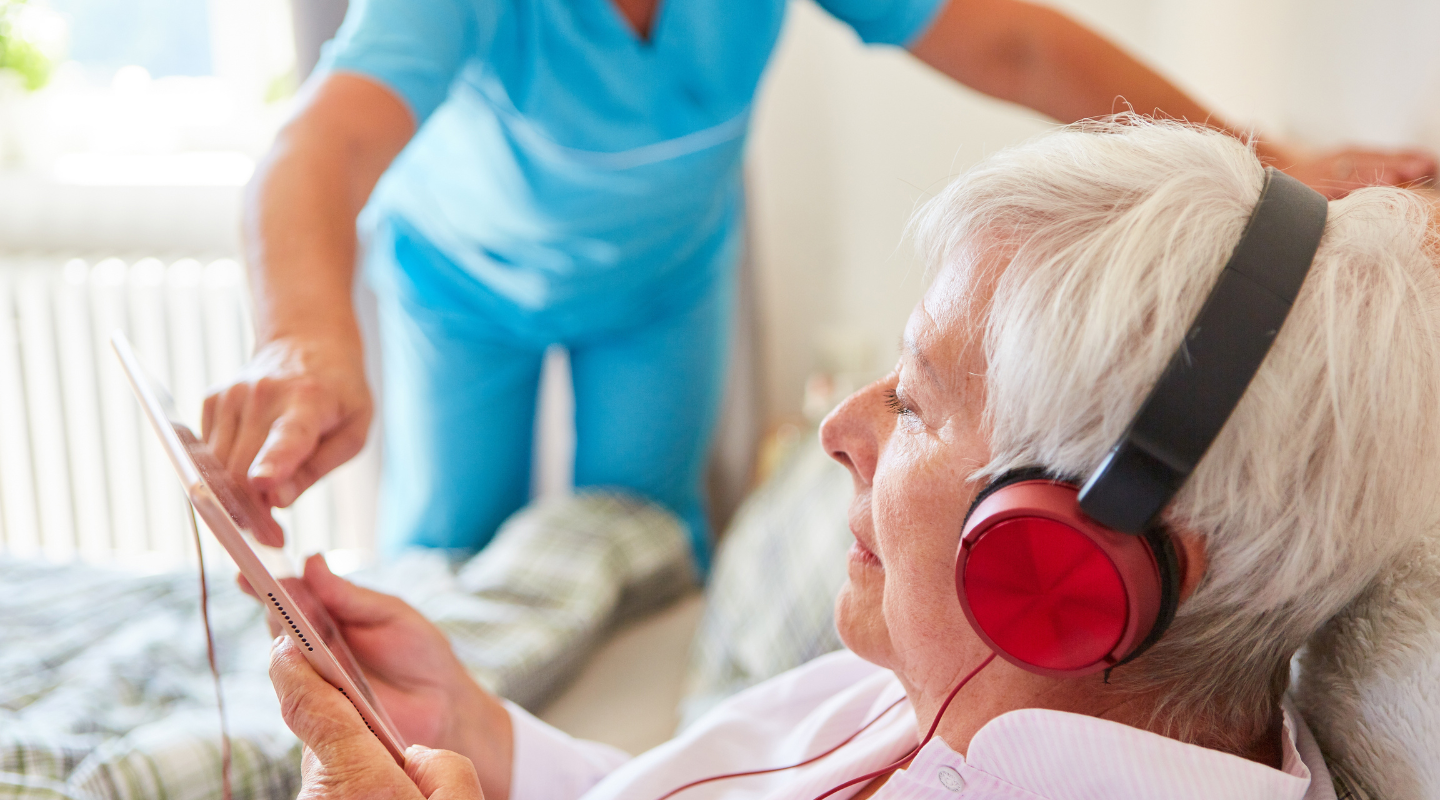Scientifically proven: music therapy lowers stress

Music works. Not only in shops, workplaces or bars and restaurants, but also in healthcare. Martina de Witte, researcher and lecturer in the Creative Therapy programme at the University of Arnhem and Nijmegen (HAN) and the University of Amsterdam (UvA), knows this better than anyone else. She did her PhD on research into the effect of music on reducing stress.
Music affects your stress level and how you feel. That’s why athletes choose music that uplifts them before a race, restaurants choose atmospheric music to relax their guests and if we need cheering up, we choose an upbeat song to sing along to. Making your own music also affects your mood.
Making music together makes you feel good
Too much stress can cause physical and psychological symptoms. According to PhD research by music therapist Martina de Witte, you can reduce that stress through music. Music can lower your blood pressure, heart rate and hormone levels.
"Music therapy is an accessible way to reduce stress. Making music is a particularly effective way of lowering stimulation levels, your alertness. This can be singing or playing music together. You experience the music and the energy it gives you. This makes you feel positive and has a great effect on reducing stress."
Music therapy is about improvising
Music therapy students not only gain (neuro)psychological and medical knowledge during the course, but they also learn how to improvise by playing music on the piano or guitar. By increasing the tempo and volume of music, music therapists can build and release their clients’ tension levels. Clients can then experience the difference between high and low stress levels. The music genre isn’t important. De Witte: “We could be making raps or drumming hip-hop rhythms. You start off fired up, and then slow down the beat or rap.”
Calmer and less pain through music
Music is also valuable in a medical setting. De Witte believes that the benefits of music in healthcare are clear. “Music makes patients feel calmer. This is beneficial, both for healthcare staff and patients. It reduces the need for medication. And music is not addictive and has no side effects. Nor is it expensive.”
"When you’re tense, you squeeze your muscles and that has an effect on pain perception. Pain during a medical examination can therefore be more intense. Calm music helps clients to relax more easily in the treatment room, and they experience less pain."
First, lower your stress levels
De Witte worked for 14 years as a music therapist at STEVIG, an organisation that helps young people and adults with mild learning difficulties and psychiatric problems. For the last few years, she worked in a forensic psychiatric ward with people undergoing involuntary treatment. The work prompted her PhD research, and she now uses the experiences she gained there as a researcher and music therapy teacher.
"If someone has committed an offence, you want to understand why they did it. Then you can prevent it from happening again,'' she explains. ''If a client is very tense, they will be less able to reflect and come to terms with why they acted the way they did. Before treatment can be helpful, stress levels must first come down.'' De Witte found that music can help with this, provided it suits the client's needs. ''In my experience, music does not work as well with people who can’t tolerate noise or are experiencing psychosis."
Music therapy is successful worldwide
Music therapy is increasingly used in healthcare around the world, but the Netherlands still trails behind countries like the United States. De Witte hopes that through her research, music therapy will become more accepted and part of national guidelines for care and treatment, just like counselling and medication. Music therapy is often not covered under health insurance.
“I hope everyone can access music therapy and not just vulnerable groups, such as people with learning difficulties or older people with dementia. There is plenty of evidence that this form of therapy works. Please, let’s start using it more.”